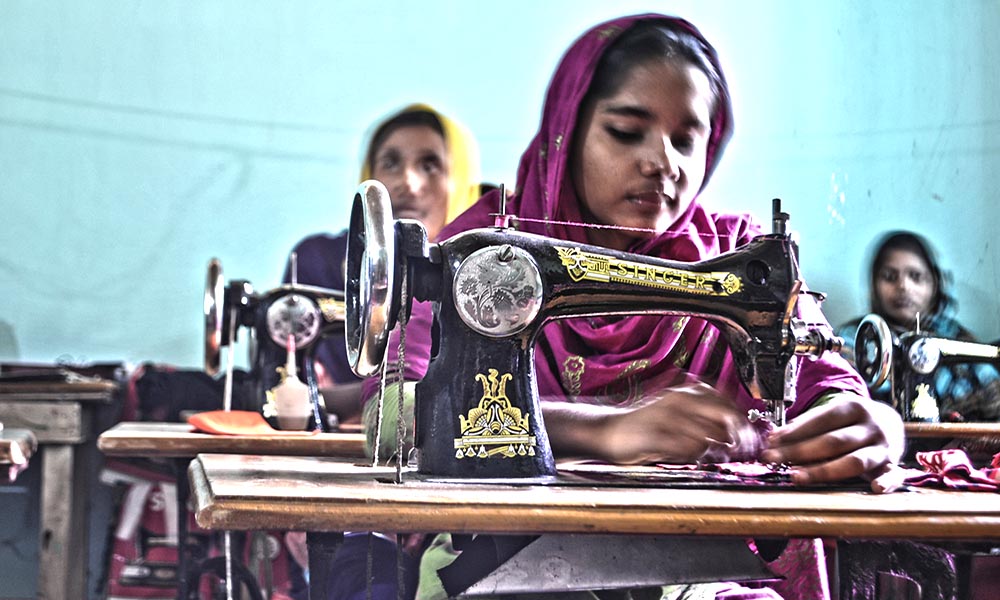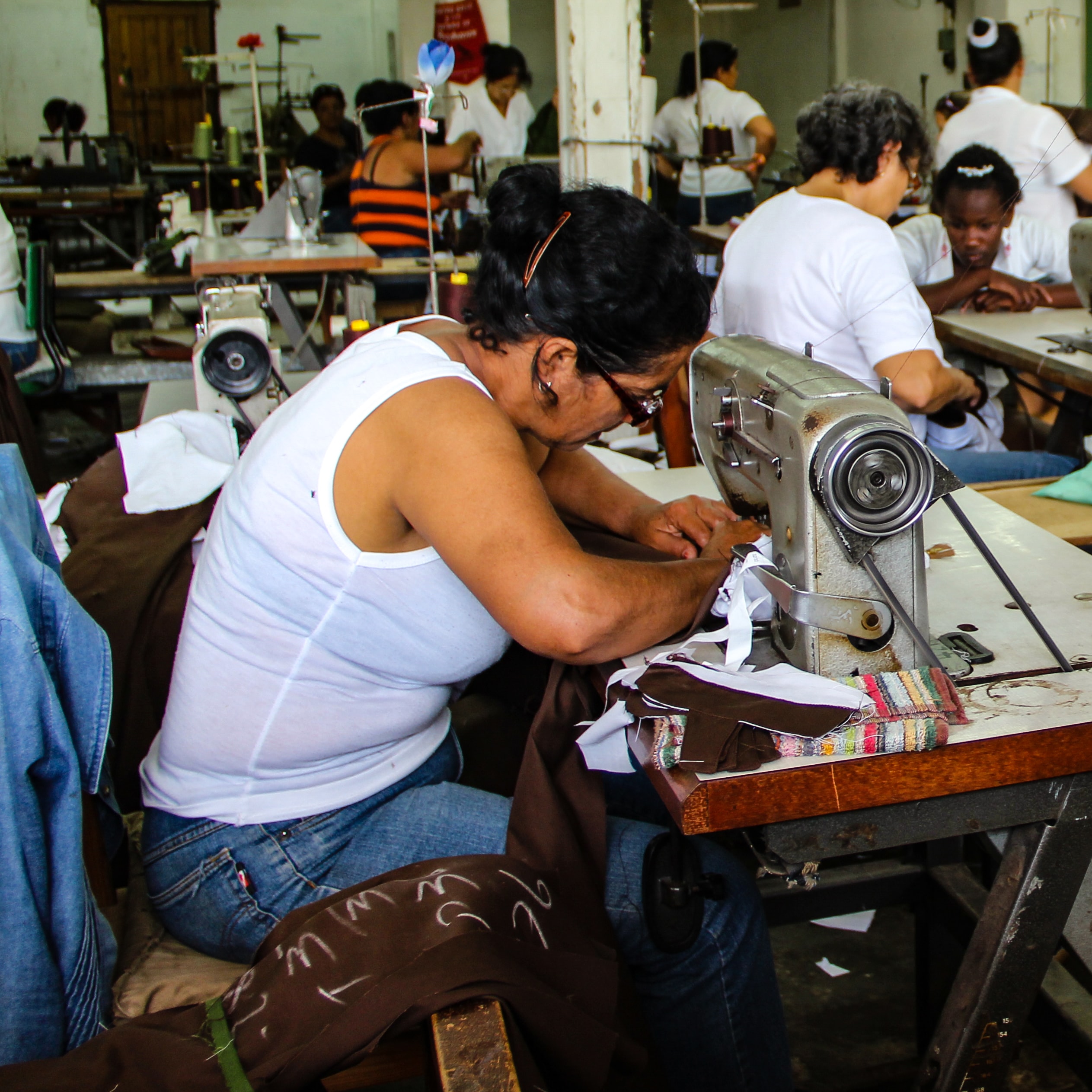What is ethical manufacturing & why should I care?

Why should we care where our clothes come from?
Trends are seasonal, jeans barely fit if you gain a few extra pounds, style is fleeting and sometimes, lint is forever. The bottom line, as important as outfits are for artistic expression, they are bought, worn, and replaced quickly, a fast revolving door of fashion. But for those who labor for this art, the factory workers in Bangladesh, Sri Lanka, China, who stitched that cliche onto your H&M crop top, so much of their life is in those threads.
Because we are contributing to the unethical practices that fuel manufacturing today. This especially true when we buy from fast fashion brands. Fast fashion is a term to describe the speed at which fashion designs move from design concept to fashion product available for purchase. It is usually characterized by high volume, low margin, fast-paced, cheap, and disposable items.
In their pursuit of cheap production, major fast fashion brands often relocate their production facilities to underdeveloped parts of the world, employing anyone and everyone capable of working in a factory, including children.
Due to poverty and unawareness, the families of these children rarely question the quality in which their sons and daughters are being treated. Child fashion workers are not only made to work in substandard conditions, most aren’t able to go to school.
In addition, most cotton farmers and sweatshop workers endure long-term exposure to pesticides, lead-based dyes, and poisoning from chemicals, ending up with significant health issues because of it.
Furthermore, the fashion industry has an unmistakably hefty carbon footprint, formed as a result of excessive pollution in all areas of operations within the fashion production and retail supply chain. It takes about 2,720 liters of water to produce just one cotton shirt – a number equivalent to what an average person drinks over three years. (EJF)
We all can agree how terrible this is, but what will we do about it?
Purchase from companies supporting Ethical Manufacturing. Ethical and sustainable clothing brands may lighten your wallet but ease the burden of the lives that are at stake. If we all start to make more conscious choices when it comes to our clothing, we’ll begin to make waves of great change, positively affecting our sisters and brothers making our brands abroad.
How do we know what is considered an ethical labor practice?
The non-profit labor organization Social Accountability International developed a series of guidelines called SA-800 to ensure the ethics of labor.
- No use or support of child labor
- No use or support for forced or compulsory labor. Threatening to withhold salary, benefits, or documents to force work is one example. Human trafficking is a bleaker one.
- Provide a safe and healthy workplace. Job sites must have senior managers that ensure Occupational Safety and Health to detect and avoid risks.
- Respect the right to form and join trade unions and bargain collectively.
- No discrimination based on race, national or social origin, caste, birth, religion, disability, gender, sexual orientation, union membership, political opinions, and age, you get the idea.
- Zero tolerance for punishment, harsh and inhumane treatment. Dignity and respect are particularly exemplified in this guideline.
- Working hours comply with industry standards: what a normal workweek should be like and having overtime be compulsory if negotiated in CBA (Collective Bargaining Agreement)
- Remuneration, meaning, respecting the right to a living wage that sufficiently meets basic needs
Among the 40 million garment workers in the world, 85% are women. At EBY, our manufacturing is not disconnected from the values that brought us together; any woman that is a part of our community becomes our responsibility as well. We chose to work with a factory in Sri Lanka that comply with UN Women’s Empowerment Principles. The Women’s Empowerment Principles (WEPs) are a set of Principles offering guidance to businesses on how to promote gender equality and women’s empowerment in the workplace, marketplace, and community. Established by UN Global Compact and UN Women, the WEPs are informed by international labor and human rights standards and grounded in the recognition that businesses have a stake in, and a responsibility for, gender equality and women’s empowerment. Preserving the dignity of our workers is another way EBY is aiming to ethically move through the world.
EBY, Empowered By You, is a company pushed forward by your decisions, the decision you made by purchasing our products, that not only honors these manufacturing ethics but provides microfinance loans to female entrepreneurs around the world.
We know what’s underneath matters to you. At our core, we are a women’s empowerment company that stands for strong values and principles. Ten percent of every order of our comfortable, body-celebrating seamless underwear, bralettes, shapewear, and masks fund Microfinance loans for female entrepreneurs around the world. That’s also why all seamless products on our site are made at manufacturing plants under the Women’s Empowerment Principles developed by the United Nations. That means your panties are made ethically: no sweatshops, and no fast fashion. Learn more about our mission and our products.



